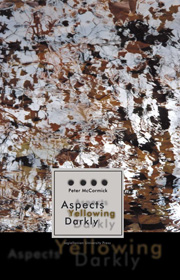 Aspects Yellowing Darkly
Aspects Yellowing Darkly Book contents
- Frontmatter
- Dedication
- Epigraph
- Contents
- PREFACE
- ORIENTATIONS – Moral Intuitionisms and the Emerging Europe
- PART ONE FIRST READINGS
- PART TWO SECOND THOUGHTS
- Chapter Five Montale and Ethical Emancipation from Suffering
- Chapter Six Valéry and the Visual Perception of Suffering
- Chapter Seven Eliot on Moral Discourse on Suffering
- Chapter Eight Residues and Surfeits of Sense
- ENVOI
Chapter Five - Montale and Ethical Emancipation from Suffering
from PART TWO - SECOND THOUGHTS
Published online by Cambridge University Press: 05 September 2014
- Frontmatter
- Dedication
- Epigraph
- Contents
- PREFACE
- ORIENTATIONS – Moral Intuitionisms and the Emerging Europe
- PART ONE FIRST READINGS
- PART TWO SECOND THOUGHTS
- Chapter Five Montale and Ethical Emancipation from Suffering
- Chapter Six Valéry and the Visual Perception of Suffering
- Chapter Seven Eliot on Moral Discourse on Suffering
- Chapter Eight Residues and Surfeits of Sense
- ENVOI
Summary
After the brief “Interlude” to pull together several of the most important preliminary results in the first readings we developed in Part One, we now move on to the further task of developing some second thoughts about our major themes in Part Two. In the interests however of preserving a certain continuity in our reflections, we do well to reverse the order of our inquiries in the first half of this philosophical and meditative essay and proceed from Montale's poetry and the question of ethical liberation back through Valéry's poetic prose about moral perceptions to finish with Eliot's puzzles about moral discourse.
In our second set of investigations, then, of Montale's poetic representations, we may take our further discussion of moral motivation as mainly discussion of what actually structures or patterns our distinctive responses to the varied ways in which moral values present themselves. Some of those responses we will surmise with the help of Montale's work would seem to result in something like what we may call here with help of our second cardinal expression, “ethical emancipations.”
Some Terms
In everyday common English parlance, some native English-language speakers use the word “emancipation” to refer mainly to releasing someone from “control or restraint, esp. a legal or political one.” Others, however, use this word to refer mainly to causing someone “to be less bound by social conventions, moral restraints, intellectual prejudices, etc.” This second use is the more pertinent one for our purposes.
- Type
- Chapter
- Information
- Aspects Yellowing DarklyEthics, Intuitions, and the European High Modernist Poetry of Suffering and Passage, pp. 125 - 138Publisher: Jagiellonian University PressPrint publication year: 2010


